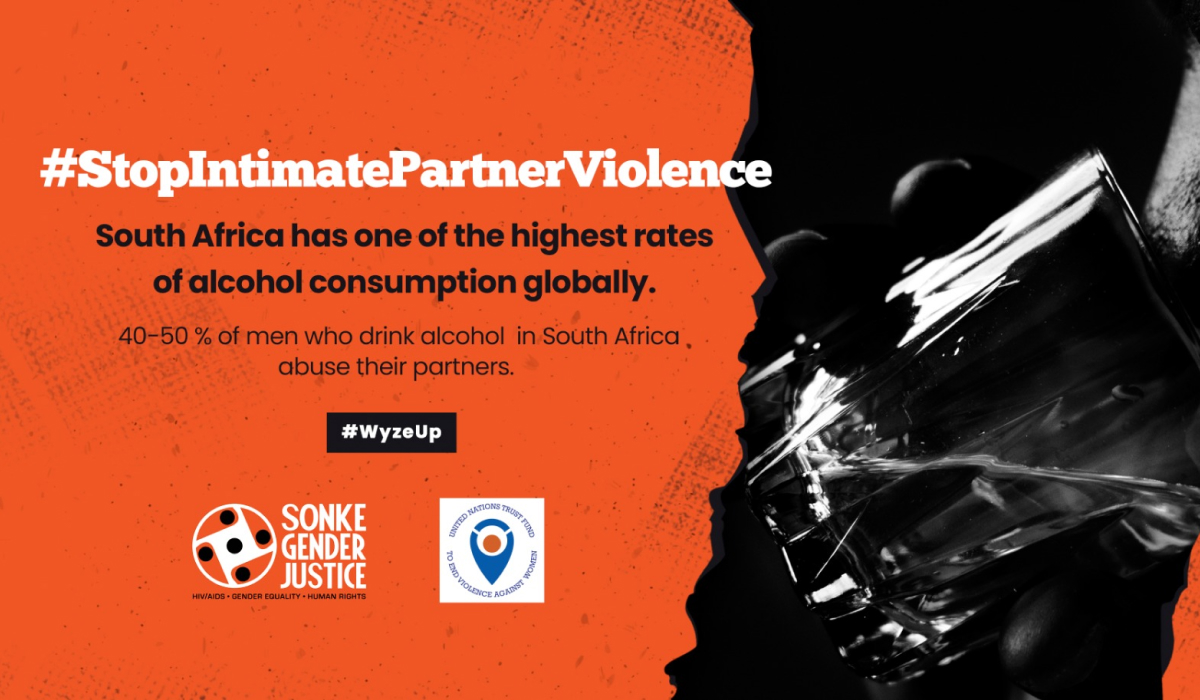How does alcohol use or abuse impact intimate partner violence (IPV)?
In our organisation, we support people to find the help they need. For example, if they need to open a police case for abuse or rape and victim support in court. We also do awareness campaigns within our community, such as dialogues and colour run. As a result, we see many cases. What we sometimes observe is that when couples are intoxicated, they tend to be psychologically and sometimes physically abusive to each other.
What needs to be done to stem IPV resulting from alcohol misuse?
We need to regulate our liquor stores so they are in a business area and not in neighbourhoods. That way it becomes hard to access alcohol and maybe it would encourage people to drink responsibly. There is a need to restrict the times in which liquor stores open and close so alcohol becomes hard to access.
There is also a need to regulate adverts for alcohol that are played on TV so we don’t normalise drinking as a society. Let’s also start educational campaigns at schools to teach children about the dangers of alcohol and the impact of gender based violence from an early age.
Research shows that many interpersonal violence cases involved physical attacks by men on women. Research has shown that around 60% of these GBVF cases are alcohol-related. Are we doing enough to educate men and what needs to be done?
We need more programmes targeted at educating men about the impact of GBV on women. It can be through dialogues that help them understand how this abuse affects their partners emotionally or physically.
Additionally, we need to continue educating and empowering women who are victims and survivors of GBV by offering them counselling services. The counselling services offered by the government should be available locally instead of being far away because this is where the abuse takes place. We also need to empower them to become financially independent so they are not pressured to stay in abusive relationships because they have nowhere to go. .
How can NGOs, civil society, government and municipalities be part of the solution?
NGOs need to collaborate and streamline activities for effective use of resources. GBV is prevalent and if we work in isolation we will not be able to win the fight against it. So, let’s collaborate. The government and the municipalities also need to provide resources to NGOs and civil society and regulate alcohol so we can encourage its responsible use.
What key can you share with men regarding GBV, especially that caused by alcoholism?
Basically, on weekends police stations have high cases of gender-based violence with the perpetrators being men. They become abusive when consuming alcohol or other substances. Men need to come to be educated about GBV and to also voice our concerns. I have also noted that men are suffering from mental health issues. So, I think men’s forums or dialogues will provide a platform for men to speak about issues and seek help before they release their frustration on their families.
You can read other blogs in the series here
Watch the video on the correlation between alcohol misuse and intimate partner violence here


